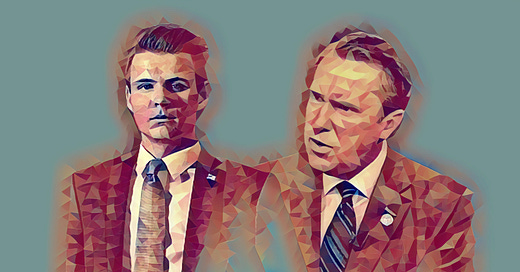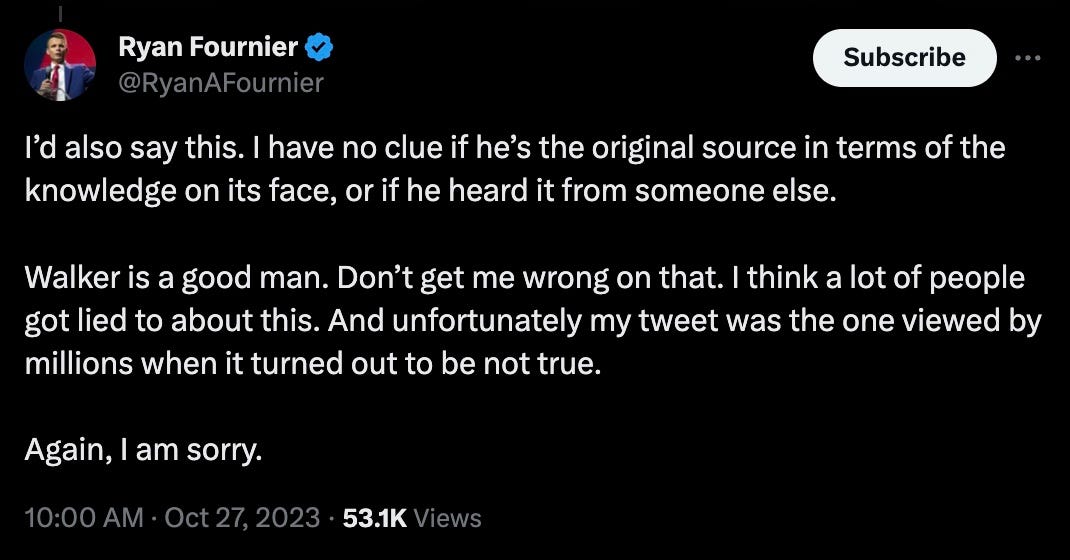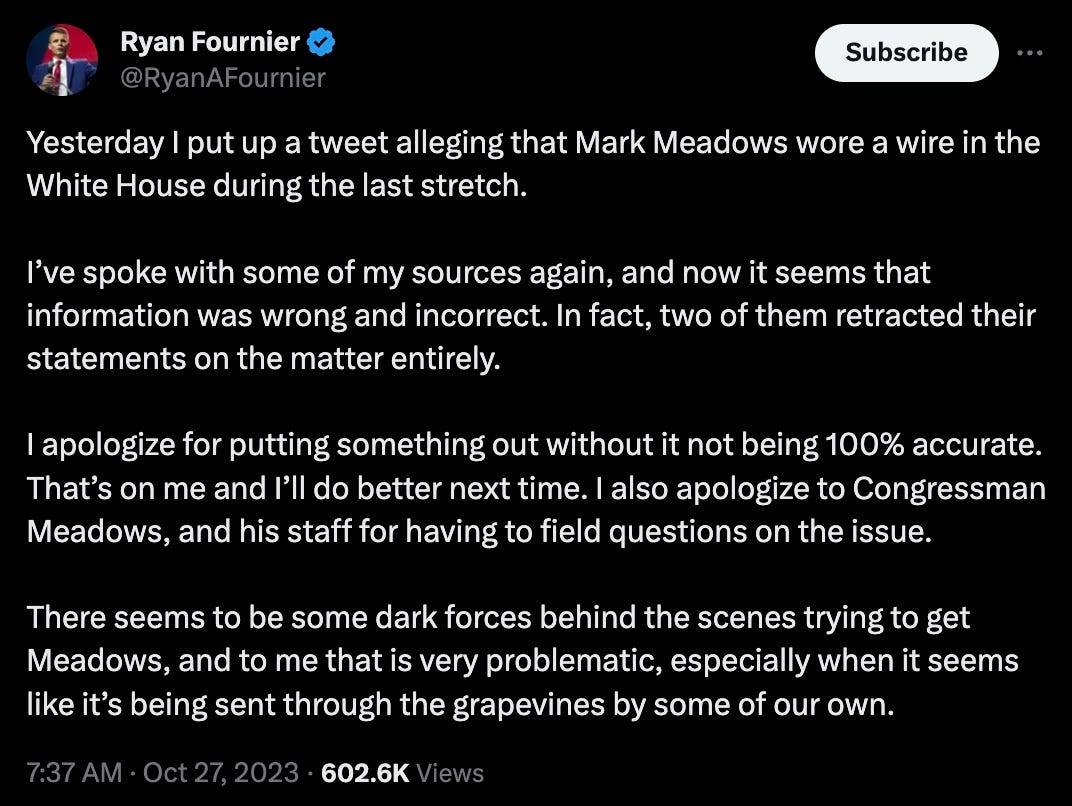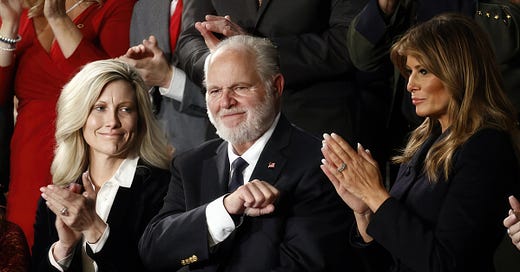

Discover more from @amuse
Should the Identity of Anonymous Sources be Revealed if they Lie to Journalists?
Unpacking Ryan Fournier's Retraction of his Reporting on Trump's Former Chief of Staff Mark Meadows based on Anonymous Sourcing.
UPDATE: Shortly after his retraction today Ryan explained that former Rep. Walker was the source of the original claim that Trump’s former Chief of Staff was wearing a wire. But later he clarified that Rep. Walker wasn’t HIS source but supposedly the source of his source. Rep. Walker has denied the claims. As of the publication of this update, Ryan has NOT revealed the name(s) of the sources who claimed Rep. Walker told them Mark Meadows was wearing a wire. In my opinion, these developments make it even MORE important for Ryan to reveal the names of his sources. [developing]
The recent debacle involving Ryan Fournier's allegations against Mark Meadows has reignited the debate on the ethical responsibilities of journalists when dealing with anonymous sources. Fournier, who initially seemed to have credible sources, later retracted his reporting, leaving us to ponder the role of journalists in such situations. Should they reveal the names of their sources if they are confident they were lied to? This article delves into the complexities of this issue, drawing from the thoughts of journalistic scholars and journalism schools.
Dan Gillmor argues that news organizations should stop using anonymous sources except in rare circumstances. He criticizes the New York Times for its frequent use of anonymous sources, which he believes erodes public trust in journalism. FAIR (Fairness & Accuracy In Reporting) also questions the role of anonymous sources, especially those that intentionally disseminate dubious information. Gilbert Cranberg, writing for the Sarasota Herald-Tribune, suggests that journalists who promise not to disclose a source's identity can become complicit in lying.
From a conservative standpoint, transparency and accountability should be the cornerstones of any institution, journalism included. The use of anonymous sources, while sometimes necessary, should not be a carte blanche for spreading misinformation. Journalists like Fournier must take responsibility for their reporting, especially when it has the potential to influence public opinion and policy.
A balanced approach would involve stringent vetting of anonymous sources and a willingness to reveal their identity if they are found to have intentionally misled the journalist. This aligns with the thoughts of Bill Kovach and Tom Rosenstiel, who argue that if a source has been granted anonymity but is later found to have misled the reporter, their identity should be revealed.
In Fournier's case, revealing the name of his original source, "Former Rep. Mark Walker," was a step in the right direction. It not only holds the source accountable but also restores some level of trust in journalism. This is not just about one journalist or one source; it's about the credibility of journalism as a whole.
The ethical dilemma surrounding anonymous sources is not a simple one to solve, but it is crucial for maintaining the integrity of journalism. Journalists must be willing to take the bold step of revealing their sources if they are confident they were lied to. This would not only uphold the principles of transparency and accountability but also restore public trust in an age of misinformation.



















Anytime I see "anonymous sources" in an article I immediately assume its fake news and propaganda and discount anything it has to say unless I can find an alternate verifiable source.
No. Anonymous sources should remain anonymous.
At the same time, journalists owe it to themselves to maintain distance between themselves and off the record sources. People speaking anonymously have by definition their own agenda; it compromises the journalist's ethics to forget that and treat the anonymous source with the same credibility as the source willing to go on the record.